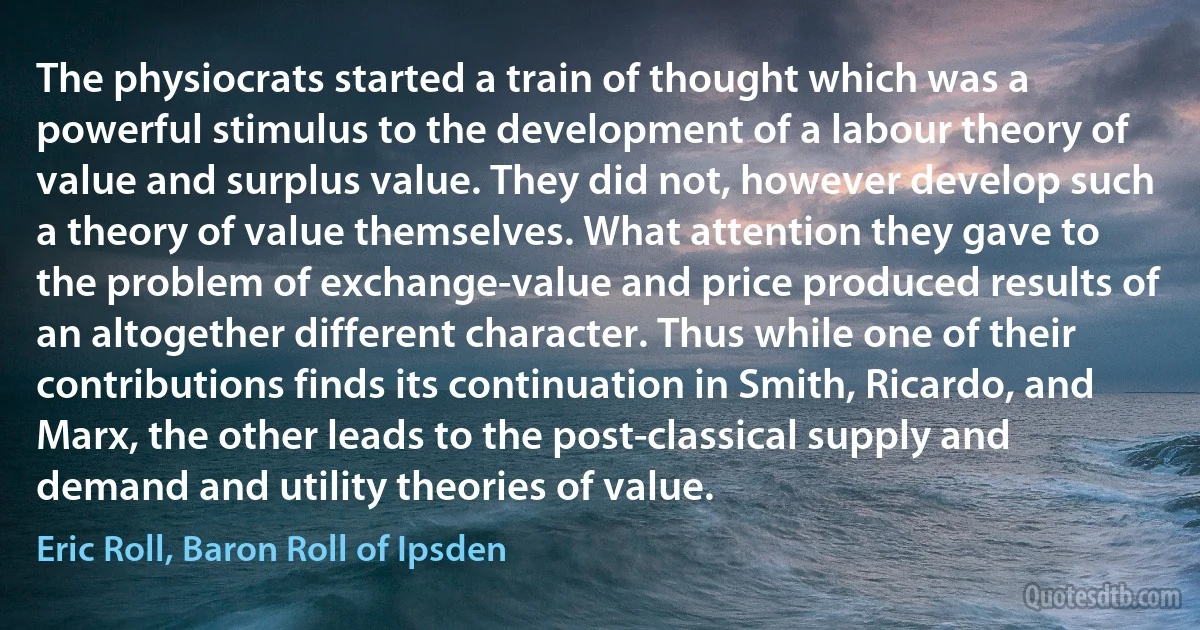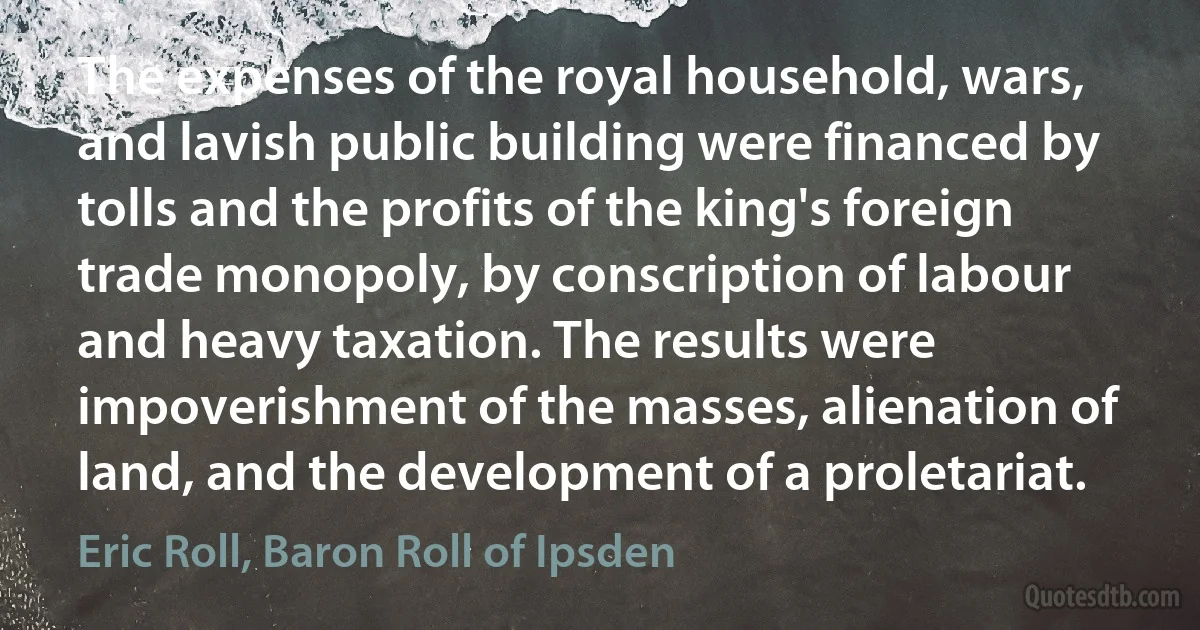Eric Roll, Baron Roll of Ipsden quotes
Mill sought to strengthen his defence of trade unions not by denying their possible monopoly effects, but by an appeal to the principle of laisser faire itself. To prevent the formation of corporate unions was, he thought, to interfere with a right obviously included in the general rule of freedom of contract.

Eric Roll, Baron Roll of Ipsden
Whatever his merits as an economist, Hume's place as one of the foremost exponents of capitalism is clearly established. His views on the landed interest and his recognition of self-interest and his desire for accumulation as the driving forces of economic activity in his time helped to consolidate the forces that were struggling to add political power to the economic supremacy which they had already achieved.

Eric Roll, Baron Roll of Ipsden
Marx's prognosis of the future of the capitalist system has often been understood to imply a fatalistic view. Marx's own life should be enough to show that this is not so. Marx did not regard man as the impotent plaything of supernatural; but he thought that man could not ignore the laws of physical nature.

Eric Roll, Baron Roll of Ipsden
The chronological inconsistencies are perhaps most clearly exemplified by the writings of Nicole Oresme. In his Traictie de la Premierere Invention des Monnies, written about 1360, he develops a theory of money which reveals a very different approach to economic problems from that of his fellow Churchmen.

Eric Roll, Baron Roll of Ipsden
One thing which is striking in Malthus's theory is his insistence on contradictions and conflicts in the capitalist system. The system is shown not to be self-adjusting. Unless a large class of unproductive consumers was maintained, periodic over-production and stagnation would inevitably occur. For the first time, in English economic theory at any rate, the possibility of crises arising from causes inherent in the capitalist system was admitted.

Eric Roll, Baron Roll of Ipsden



